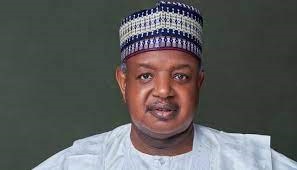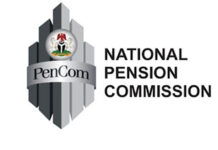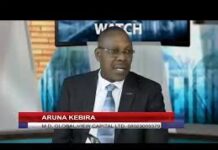Minister of Budget and National Economic Planning, Senator Atiku Bagudu has said that the private sector is critical to driving the economic growth and development of the country.
Bagudu said the government is seeking the support of the private sector because it cannot bear the burden alone.
The minister spoke at the just concluded 30th Annual LAPO Development Forum.
A statement issued by the Lift Above Poverty Organisation (LAPO) Head of Programme and Corporate Communications, Dr James-Wisdom Abhulimen in Abuja on Saturday quoted the minister as stressing the need for sustained partnership with the private sector to drive the Federal Government’s development agenda in the face of dwindling revenue.
Contrary to reports in some sections of the media, Bagudu emphasised the need for non-state actors to complement the government’s efforts in promoting national and economic development.
“Essentially, NGOs exist to cover the space not covered by the government by seeking propositions on issues such as health care, environment, economy, public policy, empowerment and support to vulnerable citizens.
”The government’s policy objectives are very critical for both state and non-state actors, like the NGOs.
“The role of NGOs is to work with the government through its national development plan.
“In doing that, the actors must be very inclusive in that it has to be non-selective and non-discriminatory and you must stick to the overall needs of various areas of society.”
According to Bagudu, the government is facing enormous challenges of revenue deficit, as the growth rate is very slow and the population growth is increasing.
” Unemployment is surging amid high inflation, these are issues which non-governmental organisations must take on board in helping government to cover the space it could not cover, ” he said.
“We have a template, we have drawings, we have all the fabricated parts and everything so that it is easier to now bring people in, teach them on the various components of what they will actually encounter in the field.
“What we have today are people who know next to nothing about refining, they just go into the bush and begin to break pipelines and begin to boil or cook oil.
“We’re doing it differently by training them and by equipping them with the necessary skills that will make them be able to contribute meaningfully to the economy,” he stated.
At the conference, he stated that issues like energy security, the role of government policies and regulations, energy transition as well as decarbonisation will be discussed.
Themed: ‘The Future of the Oil and Gas Industry: Opportunities, Challenges and Development’, Adimula stated that during the upcoming programme, scheduled to begin on Monday, the PTI would showcase recent research outcomes from the institute.
The institute added that it was partnering with the NNPC Research, Technology, and Innovation (RTI) Centre to develop a cost-effective Compressed Natural Gas (CNG) programme for tricycles and small vehicles nationwide.
Director of Research and Development, PTI, Dr. Tina Isichei, while speaking, said that the collaboration with the NNPC unit will assist in placing less emphasis on the use of petrol to the use of cleaner energy like gas.
“The other aspect of cleaner energy is the issue of transportation, which is key in any country. And for us in Nigeria as a whole, what we’re still using is PMS. That’s what drives our tricycles, drives our cars, and all that.
“Right now, the PTI is partnering with NNPC-RTI to come up with CNG-powered tricycles, especially as the government is talking about the decade of gas and emphasis is now on gas.
“We know that gas is a cleaner energy source than crude. So discussions are on and the whole idea is to come up with one research that will reduce the amount of petrol that we consume. The other one is how to reduce the emissions that are going into the atmosphere,” she explained.
He added that all parties involved in the matter, including the Nigerian National Petroleum Company Limited (NNPC), the federal government, and others would be heard to enable it to proffer a solution for the revival of the project.
Williams said: “We’ve seen it all. We’re going back to the drawing board and we will call everyone involved. We have the assurance of the Senate President because we all want this country to work for everyone.
“We’re committed to making things work and we are assuring all stakeholders that justice will be done.”
The Senate committee’s efforts align with the vision of the President Tinubu administration towards maximising the nation’s petroleum resources and leveraging them for the overall growth and development of Nigeria.























